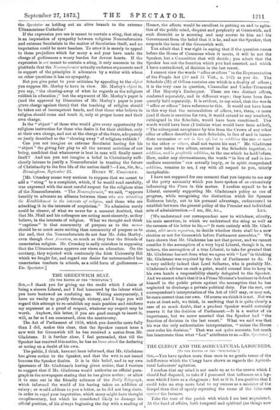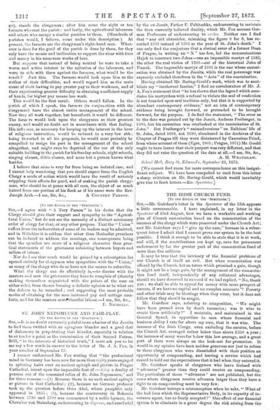go), stands the clergyman ; after him come the eight
or ten farmers who rent the parish ; and lastly, the agricultural labourers and others who occupy a similar position to them. (Hundreds of parishes would, I believe, come under this description.) At present, the farmers are the clergyman's right-hand men. What- ever is done for the good of the parish is done by them, for they only have the means and inclination to support the vicar with time and money in his numerous works of love.
But suppose that instead of being neutral he were to take a warm and active interest in the agitation of the labourers, and were to side with them against the farmers, what would be the result ? Just this. The farmers would look upon him as the author of their difficulties, and would regard him as the main cause of their having to pay greater pay to their workmen, and of their experiencing greater difficulty in obtaining a sufficient supply of hands, for higher pay means less work.
This would be the first result. Others would follow. In the parish of which I speak, the farmers (in conjunction with the clergyman) have the almost entire management of the school. Now they all work together, but henceforth it would be different. The farnasrs would look upon the clergyman as their greatest enemy, and would no doubt act in accordance with that feeling. His infin 'uce, so necessary for keeping up the interest in the hour of religious instruction, would be reduced to a very low ebb ; being thwarted in all his proposals, he would most probably be compelled to resign his part in the management of the school altogether, and might even be deprived of the use of the only suitable building in the parish for his Sunday-schools, night schools, singing classes, Bible classes, and none but a parson knows what besides.
I believe that mine is very far from being an isolated case, and I cannot help wondering that you should expect from the English Clergy a mode of action which would have the result of seriously crippling their efforts for good, and of making the parish clergy- man, who should be at peace with all men, the object of as much hatred from one portion of his flock as if his name were the Rev.



































 Previous page
Previous page